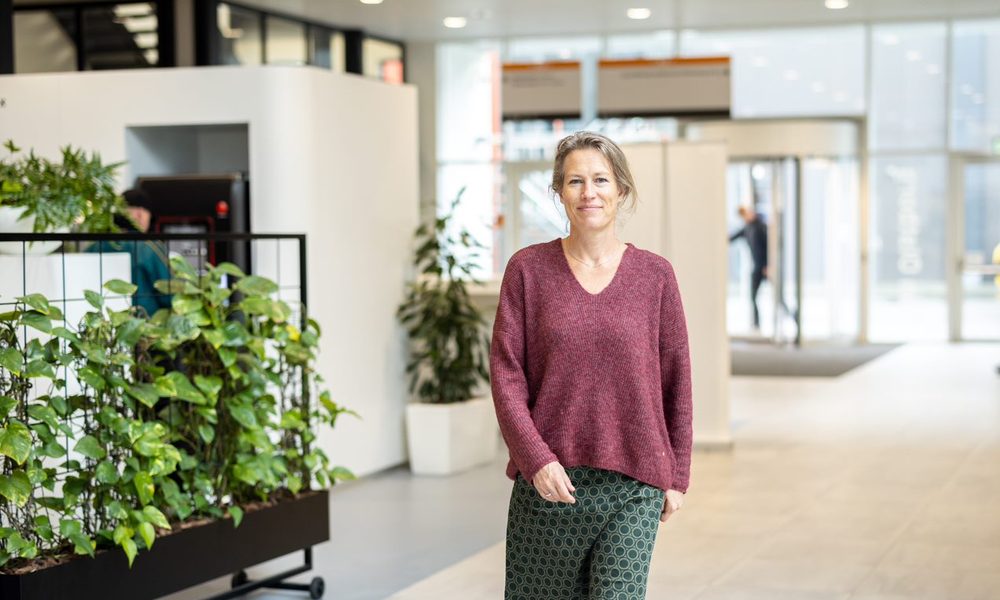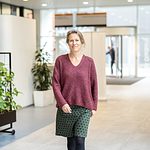Practical guidelines against child poverty
- Research stories

One in five children in the former peat colonies in Drenthe and the city of Groningen grows up in poverty. Professor Annelies Kassenberg, bridge officer Sharon Lawson and experiential expert Alex Schepel are supportive of these children and their living environment.
'Children in poverty are at risk of being socially excluded. They are less likely to invite friends to play and there is no money for school trips or for a sports club. Going on holiday is also not an option. That causes stress, especially if there are debts,' says Annelies Kassenberg, lecturer Youth and the Living Environment at Hanze. 'Schools are alert: teachers see that children are called in sick on their birthdays. Not because they are sick, but because there is no money for treats. Children are ashamed of the problems at home and have worries that should not be children's concerns.'
In 2017 two reports were published, one by the Children's Ombudsman and one by the Social and Economic and Social Council, which once again showed how great the consequences of poverty are for children. Annelies Kassenberg: 'Once again, I realised that growing up in poverty is very restrictive for children. If you want to break the cycle of often intergenerational poverty, you have to start with the children. Children must be given opportunities to get out of it, to do things differently for themselves later in life. The Ombudsman for Children gives a number of recommendations. One of these is that professionals, especially teachers, can do a lot in that process. But it requires that you are aware of the problem, able to identify it and know what kind of support you can offer.'
Commissioned by various ministries and Divosa, Annelies, together with fellow lecturer Mariëtte Lusse of the Rotterdam University of Applied Sciences, conducted research and developed three guidelines for professionals in education, the social domain, youth health and maternity care. 'They are very practical tools on how to help families and children. It is based on research, but it is not a scientific treatise. They are very practical guidelines for the professional. There is also advice for administrators and municipalities, but the core are the guidelines for professionals. For the study various consultations were held among professionals, experts, experts by experience, parents and children with the aim of gathering as much experiential knowledge as possible. The analysis of this information resulted in three categories of advice: identifying, supporting and stimulating.'
Annelies Kassenberg conducts her research as much as possible in and with the professional practice. Bridge officers in education have played an important role in the creation of the guidelines. Sharon Lawson is a bridge officer at public primary school de Pendinghe, on the border of the Groningen districts of Paddepoel and Selwerd. 'A bridge officer acts as a go-between between child, school and parents, in order to increase children's opportunities. I mainly have a signalling function and poverty is one thing I look out for. If a family needs a bicycle or money for a sports club, I refer them to the authorities. I also do this when there are parenting problems because I am not a social worker. I am Miss Sharon and therefore easier to approach than a director or a member of the WE team. We started here ten years ago to increase parent involvement at this school. We are involved in Annelies Kassenberg's research through the Youth Education Fund, which is a very large pot of money that schools can call on. It is emergency money, but also money that we can use educationally. We have had discussions with Annelies and other schools and provided input about what works and what doesn't work, and what we are up against. We have a lot of knowledge because our school has traditionally been located in a neighbourhood where there is a lot of poverty. Many schools don't have that knowledge. The guide shows, for example, that if a child wears nice shoes, it does not mean that things are going well at home. You can gain that insight if you use the guide. Plus referrals where you can go or what you could use. With us, poverty is visible and the parents are no longer ashamed. But there are also neighbourhoods with hidden poverty, where poverty is a taboo. Then it's good to talk about it at school, because if the teacher doesn't signal it, nothing will happen. I think that awareness is the most important thing and that the guide can help very well with that.'
Experience expert Alex Schepel (51) also provided input for the guidelines. Alex is an experiential lecturer at Sterk uit Armoede, an emancipation movement that wants to break the cycle of poverty in cooperation with the people it affects. He lived in poverty himself for 44 years, both as a child and as a working adult. Alex: 'I was the youngest in a family of six children. A working-class family with the mentality of: who is born poor will stay poor. We lived in Paddepoel, in a bubble with like-minded people. We felt a kinship with the bottom rungs of society, we didn't want to have anything to do with the rest. Because I was kept small by my mother and learnt to fight for your place outside from my father, I did not learn to solve problems, to deal with emotions, with relationships and money. I learnt how to do juggle, closing one gap with another. These are mechanisms that I have brought into my life.'
Alex trained as a warehouse worker and worked for twenty years at a large department store distribution centre in Aduard. Even then, it wasn't a big deal. He and his family had to live on a minimum wage. They lived on sixty euros a week and received help from the Food Bank. The distribution centre closed in 2013. Alex ended up at home with all his childhood traumas, such as neglect, abuse and drinking. He was confronted with his fears and he didn't dare to leave the house or answer the phone. But he no longer wanted to hide behind his traumas either.
A free talent training brought a turnaround. He signed up with the aim never to be afraid again. 'At first I thought: what am I doing in this housewives support group? But when I discovered how good it felt to talk about myself for the first time in my life, it left me wanting more. I was asked to give the talent training myself. They saw a talent in me that I didn't see at all. Although every fibre in my body said 'no', I did it. I also signed up for the training to become an Experience Expert. It was such a relief to be able to talk about my past that it felt as if I was floating during that period.'
Alex got a job as a tandem teacher at Noorderpoort. 'I interpreted the behaviour of the class for the regular teacher. Children develop all kinds of survival mechanisms to protect their wounded inner child. I recognise those mechanisms. Since 2019, I have been using my talents for Sterk uit Armoede, an organisation that trains experts by experience and sees experiential knowledge as part of the solution. Because I can help people with the shit from my past, my life has a purpose. I've broken taboos by airing my own dirty laundry. I have discovered talents in myself that I did not even dare to dream of. I am a teacher, I work with municipalities and ministries, I give interviews, I perform on stage. And most importantly, I have left my social-emotional poverty behind me and no longer feel poor. I wish the guidelines had been there when I was young. This will help professionals to better deal with families in poverty.'
At the beginning of 2021, Annelies Kassenberg and three partners from the Youth & Living Environment research group founded Gro Next, a collaboration between the municipality of Groningen, CMO STAMM, Moedige Dialoog Groningen and Hanze. On this platform all the knowledge and skills of the partners are bundled to make them available. Hanze has joined in on the basis of the theme of Equality of Opportunity & Participation, because it is a great way to make the research available to the professional practice, and because the Hanze trains future professionals and students can benefit from Gro Next. Collaboration plays a very important role in this. Gro Next aims to ensure that the teacher, the youth care worker, the debt counsellor and the health care system know how to find each other better and better. With the aim to let every child participate in society.

Lector Jeugd & Leefomgeving
Zernikeplein 9, 9747 AS Groningen
How satisfied are you with the information on this page?